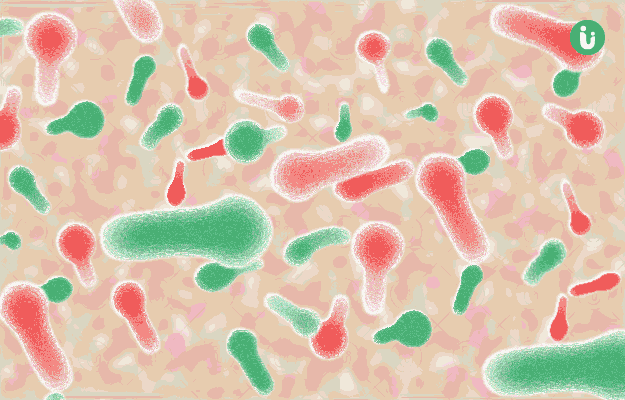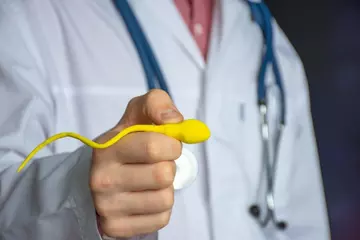What is botulism?
Botulism is an illness caused by botulinum toxin, which is produced by the Clostridium botulinum bacteria. Clostridium botulinum is a soil bacterium that is ubiquitous and hard to kill. Since the bacterium thrives in the absence of oxygen, canned food serves as a potent breeding ground for the bacteria. When the botulism bacteria infects a person, it releases botulinum toxin that can cause paralysis, which starts with the face, spreading to the vital organs and limbs. It can also lead to respiratory failure if the toxin reaches the breathing muscles. Since botulism leads to paralysis, it is a medical emergency.
Below are the types of botulism:
- Foodborne botulism occurs due to consumption of food contaminated with the botulinum toxin.
- Wound botulism occurs when the bacteria comes in contact with an open wound and releases the toxin in the wound.
- Infant botulism can occur when an infant consumes the bacteria through contaminated food. In infant botulism, the bacteria and its toxin is present in the stool too.
- Adult intestinal colonisation occurs when the bacteria spreads to the digestive tract. This type of botulism occurs rarely.
- Iatrogenic botulism may occur by post-therapeutic administration or an overdose of botulinum toxin (Botox).
What are its main signs and symptoms?
Symptoms may start to appear 6 hours to 10 days post infection. The average time for symptoms to appear in infant and foodborne botulism is 12 to 36 hours post infection.
Symptoms of food botulism include:
- Nausea
- Vomiting
- Abdominal cramps followed by constipation
- Difficulty in swallowing/speaking
- Dry mouth
- Facial weakness on both sides of the face
- Blurred or double vision
- Drooping eyelids
- Breathing trouble
- Paralysis of various muscle groups all over the body
While the symptoms of foodborne, wound, adult, and iatrogenic botulism are similar, symptoms of wound botulism may take 4 days to 2 weeks to appear. In wound botulism, the nerves connecting the brain to the spine first experience the symptoms which then spread to the rest of the body.
In infant botulism, the infant may show symptoms like constipation, difficulty in feeding, tiredness, irritability, drooling, drooping eyelids, weak cry, and loss of head control and floppy movements due to muscle weakness.
What are its main causes?
Botulism mainly occurs by consuming food that contains the botulinum bacteria or coming in contact with contaminated soil. The botulism spores grow inside the intestines releasing botulinum toxin. Main food sources of the bacteria are home canned foods or commercially canned foods that have not undergone proper processing. The toxin is also present in preserved vegetables with low acid content, such as beets, spinach, mushrooms, and green beans. Canned tuna fish, fermented, smoked, and salted fish, meat products such as ham and sausage are also known to contain the toxin.
Wound botulism cases occur when the botulism spores enter an open wound. Drug usage through injection is a common cause of wound botulism, as the spores are commonly found in heroin and cocaine.
How is it diagnosed and treated?
For making the diagnosis, your doctor will ask questions about the food that you have consumed in the past few days and whether you have come in contact with agents that could expose you to bacteria through an open wound. The doctor may also check for a weak voice, muscle weakness, drooping eyelids or paralysis. For infants, the doctor may ask whether the child had any honey or suffered from constipation and sluggishness.
The doctor may then ask for laboratory tests of blood, stool or vomit for confirming the presence of the toxin. It may take days to receive the results of these tests, hence, if your doctor suspects that you have botulism, he/she may start treatment immediately. In some cases, the doctor may perform special tests such as:
- Brain scan
- Spinal fluid examination
- Nerve and muscle function tests
The drug used for the treatment of botulism is called antitoxin. Antitoxin prevents the botulism toxin from causing further harm to the nerves. However, antitoxin doesn’t heal the damage that is already done. Many times, in foodborne botulism, the doctor may induce vomiting or prescribe medicines to induce bowel movements. In case of wound infected by botulism, the doctor may have to remove the tissue surgically and prescribe antibiotics.
In case you have breathing difficulty due to the toxin paralysing the breathing muscle, the doctor may put you on a ventilator until the effect of the toxin lessens and you can breathe on your own. Therapy may be required for improving speech, swallowing, and other functions affected by the disease. In 5 to 10 % of the population, death may occur.

 Doctors for Botulism
Doctors for Botulism 

















